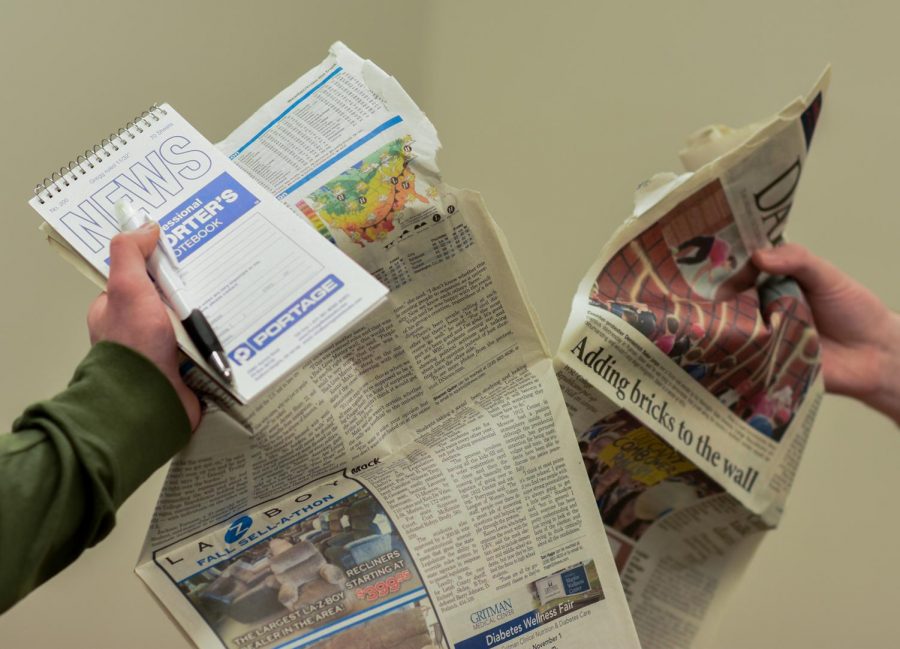Journalism is a necessary power check
An informed public is freer; obstructing truth is wrong, dangerous for democracy
PAIGE CAMPBELL | EVERGREEN PHOTO ILLUSTRATION
Blocking journalists from reporting the truth sets a dangerous precedent for democracy. Powerful people and entities need to be kept in check by the press.
November 28, 2018
The world we live in today makes it immensely more difficult for media to be a truth-seeking “fourth branch of government.” With the combination of keeping up with the news cycle, accurate information being hidden from media and social media’s ability to make everyone a reporter, journalists have a harder job than ever.
As journalists, it is our job to produce content that promotes truth and social responsibility. Society needs this service considering how little power the average person has to control their life.
Media keeps huge powers like government and even businesses in check. Powerful people have to worry their nefarious schemes will probably be discovered by a journalist intent on uncovering the truth.
Jonathan Brunt, government editor at The Spokesman-Review, said this is just as important on a regional scale as the national.
“On the local level everyone knows each other better,” Brunt said. “We know our audience are the voters for these politicians.”
For local media, the effect a story can have is much more apparent. These journalists are up close and personal with politicians and policies; they show the public how the government will affect their daily lives.
A problem arises when that journalist isn’t able to do their job properly. Powerful organizations and individuals usually want or have to keep secrets. People’s tendency to distrust information they don’t agree with can cause a bigger problem.
A similar idea to this would be the media’s many interactions with the White House. On the more comical end is the “story” around Jim Acosta, CNN’s chief White House correspondent.
Acosta lost his press pass for allegedly hitting a White House intern when she attempted to take a microphone from him. The White House got in a heated and somewhat surreal debate over the legitimacy of the alleged incident.
Sarah Huckabee Sanders, White House press secretary, tweeted footage of the incident between Acosta and the intern. When the video released by Sanders was compared with the original C-SPAN footage there was some discrepancy.
In essence, the White House used social media to spark chaos over this issue, and pull attention away from what appears to be the White House getting rid of Acosta because they didn’t like his questions, which was in fact illegal.
His press pass was returned after two weeks when U.S. District Judge Timothy Kelly ruled that Acosta’s loss of his pass caused specific harm. The White House eventually begrudgingly returned the pass but warned it could be taken away again.
On a more serious note, journalists have been heavily involved in special counsel Robert Mueller III’s investigation into collusion allegations between the Trump campaign and Russia. Here we see the media taking on a much more serious role, covering issues surrounding the investigation.
This has been one example of the media fighting back against the government even though journalists are being blocked. People all over the world want to see this investigation fall apart but thanks to the vast majority of the media world, the public has access to information about how the White House handles this investigation.
Politicians still employ tactics to prevent more local media from revealing their hidden intentions. Corruption and lies are common in all parts of government.
That’s why the media’s role is more important than ever. It is up to members of the media to promote the truth. They give the proper information about issues, which may warn the public of serious problems. It is up to the public to follow the truth and promote social responsibility.





















